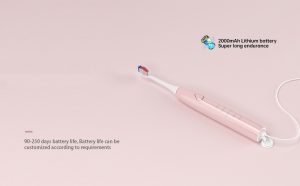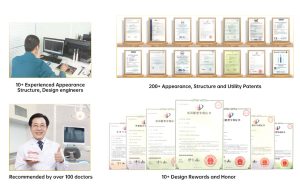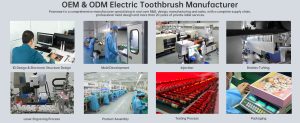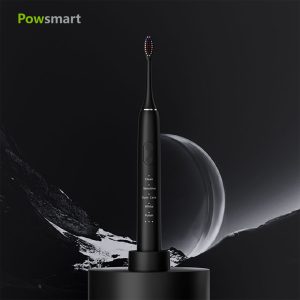The growing demand for personalized products in various industries has led many manufacturers to explore small batch customization options. In particular, lower Moq for electric toothbrush labeling has become a hot topic in the oral care industry. But the question remains: is low moq feasible when it comes to maintaining an optimal balance between minimum order quantity and cost control? This blog explores the practicalities and challenges involved in small customization qty for electric toothbrush labeling and provides insights into how manufacturers can navigate these complexities.
Understanding Small qty Customization in Electric Toothbrush Labeling
Small qty customization refers to the ability to produce a limited number of uniquely labeled or branded electric toothbrushes. Unlike mass production, where large volumes of identical products are produced, small qty offers businesses the flexibility to tailor the products to specific customer needs or branding requirements. For electric toothbrush manufacturers, this could mean customizing the label with unique logos, designs, or even specific messaging targeted to a niche market.
While small batch customization is increasingly appealing, it does introduce some challenges—especially regarding the minimum order quantity (MOQ) and cost control. Manufacturers need to balance the desire for personalization with the realities of production efficiency.
The Challenges of Minimum Order Quantity (MOQ) in Small Batches
A key aspect that affects the feasibility of small batch customization is the Minimum Order Quantity (MOQ). In traditional manufacturing settings, MOQs are usually set high to ensure cost-efficiency in mass production. However, when it comes to electric toothbrush labeling, the need for small batches means that MOQs must be adapted to accommodate lower-volume runs without sacrificing profitability.
For instance, producing just a few hundred units per batch, as opposed to several thousand, can result in higher per-unit production costs. However, with the right production strategy—such as streamlining printing and labeling processes or leveraging digital printing technology—it is possible to lower the MOQ without significantly increasing the overall cost. Manufacturers must find the sweet spot where both small batch customization and profitability align.
Cost Control Strategies for Small Batch Electric Toothbrush Labeling
Cost control is crucial when exploring small batch customization options for electric toothbrush labeling. Typically, the per-unit cost in small batches is higher due to the lower volume, but there are several strategies to mitigate these costs:
Digital Printing Technology: Unlike traditional offset printing, digital printing allows for shorter runs without the need for expensive setup costs. This can make small batch electric toothbrush labeling more cost-effective.
Economies of Scale in Material Sourcing: Manufacturers can negotiate better pricing for raw materials like labels or packaging by sourcing in bulk, even for smaller batches. Leveraging these economies of scale can offset some of the higher per-unit costs.
Outsourcing and Partnerships: Some manufacturers choose to partner with specialized labeling service providers who can handle small-batch runs efficiently. This reduces overhead costs associated with in-house label production and makes small batch customization more financially viable.
The Role of Automation in Small Batch Customization
Automation plays a key role in making small batch customization feasible. In the electric toothbrush industry, automated labeling systems can reduce the time and labor required for manual labeling, thus lowering production costs. Automated systems can also ensure consistent quality and minimize the likelihood of errors, which is especially important when handling small batches that require high precision in labeling.
By investing in automated technologies, manufacturers can better manage small batch production runs, streamline their processes, and keep costs in check, making it easier to meet customer demands for customized labels without compromising on quality or cost.
Addressing Customer Demands for Personalization
Today’s consumers increasingly demand products that reflect their individuality, and this trend is evident in the growing popularity of personalized electric toothbrushes. Customization can be a key differentiator for brands in a crowded market, allowing them to cater to niche segments or offer limited-edition designs. For manufacturers, offering small batch electric toothbrush labeling can not only meet these consumer demands but also increase brand loyalty by delivering unique, personalized products.
While small batch production requires careful management of MOQ and cost control, the benefits of offering customization—such as enhanced brand recognition and customer satisfaction—often outweigh the challenges.
Balancing Small Batch Customization and Profitability
Ultimately, the feasibility of small batch customization for electric toothbrush labeling boils down to how well manufacturers can balance the need for personalized products with the realities of production costs. By leveraging digital printing, automation, and strategic partnerships, manufacturers can reduce production costs and make small batch runs financially viable.
In conclusion, small batch customization is certainly feasible for electric toothbrush labeling when proper strategies are employed to control MOQs and production costs. With the right technological investments and an agile production approach, manufacturers can meet growing consumer demand for personalized products without compromising on profitability.
Powsmart, an electric toothbrush factory,Contact us if you wanna know if small batch customization available or not.https://www.powsmart.com/





